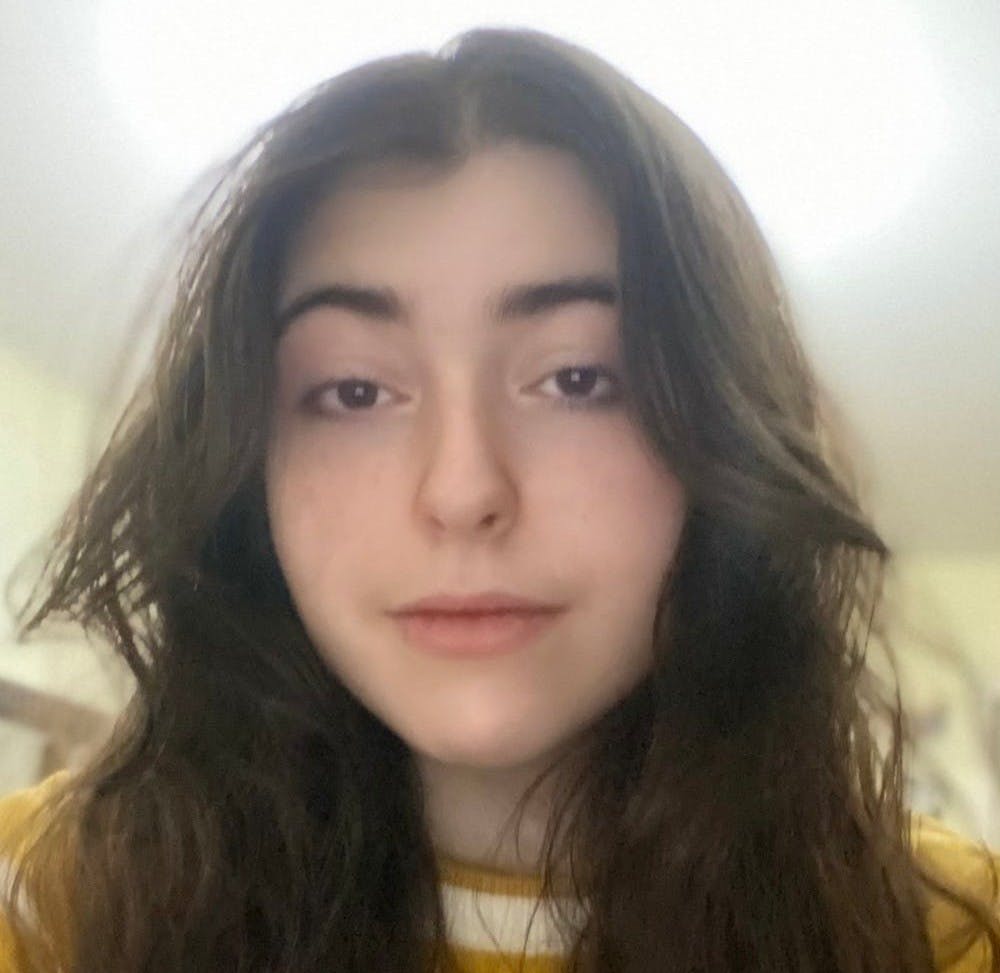I cringe when I reflect upon my middle school years, when I became invested in the political zeitgeist. I cackled at memes of Vice President Joe Biden and President Barack Obama’s supposed bromance, I memorized all the words to the “Hamilton” soundtrack and I crowded my walls with posters encouraging people to “feel the Bern.” Meanwhile, former president Obama was responsible for the deaths of hundreds of innocent civilians, the founding fathers personally enslaved people who built a nation on stolen land, and idolizing another Senate seat-warmer leaves little room for the criticism and accountability that democracy functions on.
Enrolling at American University and being stuck inside my childhood bedroom by a certain coronavirus has left me with little to do but dissect my own political behaviors, past and present. Going to a school where many students discuss their aspirations to occupy the Oval Office has definitely given me a unique insight into how my peers view people in public office. What I’ve found, unsurprisingly, is that many of us fall into a parasocial relationship with politicians we look up to. And that, needless to say, is bad.
A lot of it is probably just in good fun. We like to watch Rep. Alexandria Ocasio-Cortez (D-N.Y.) play Among Us with our favorite streamers. We fawned over Michelle Obama’s perfect curls and Kamala Harris’ stepdaughter Ella Emhoff sporting a fashionable Miu Miu jacket at the 2021 presidential inauguration.
I hate to be a killjoy, but even enjoying these things passively has harmful effects. That enjoyment eclipses the high stakes nature of politics and can even perpetuate the idea that politics should be a form of entertainment. In reality, politics is a life or death ordeal for many, especially for marginalized communities. A litany of issues plague our public consciousness: the corrupt justice and policing system, the inaccessible healthcare system, the environmental crisis, the horrible handling of the pandemic, the deteriorating infrastructure, the gross cost of higher education and the growing wage gap. The list goes on and on. American BIPOC, LGBTQ+, low-income and AFAB folks are consistently put in positions where they have to witness a referendum on their basic human rights. They cannot afford to pay attention to a politician’s social media antics when they desperately need people in power to act.
Hence, it is frustrating to see an increasingly smaller focus on political action. These recent trends, bolstered by social media and smart marketing, continue to reduce conversations that should be focused on political ability to something more miniscule — who can be the funniest candidate, the prettiest candidate, the best-dressed candidate or the most iconic “girlboss.” None of these are new concepts by any means. Charisma and likeability have been a determining factor for voters for decades. However, at AU, many of us are privileged to understand the political system thoroughly enough to weigh policy more than optics.
The truth that perfect politicians don’t exist does not absolve us from our duty of accountability as constituents. Do not become a PR machine for a public figure, especially public figures that should be working entirely on your behalf. You are doing a disservice to yourself and even to the politicians themselves, who very well may not be able to live up to the standards you set for them. Even posthumously.
Perhaps most egregiously, idolization ignores the legions of grassroots activists who have pioneered progressive policy, who have been fighting injustice before it was popular and who have risked their livelihoods for change. While many public servants are doing amazing work in office, painting them as the sole saviors of the United States is erasure. Besides, what’s the use in idolizing a politician advocating for basic human rights? Is that not just basic human decency? Does this not impede the ongoing effort to normalize governance on the basis of morality?
Whether or not you consider this a non-issue, all of us need to be more introspective about how we have chosen to consume and create political media in the past, so we can be more careful about glorifying politicians in the future.
Diana Gertsenshteyn is a freshman in the School of International Service and a staff columnist for The Eagle.





